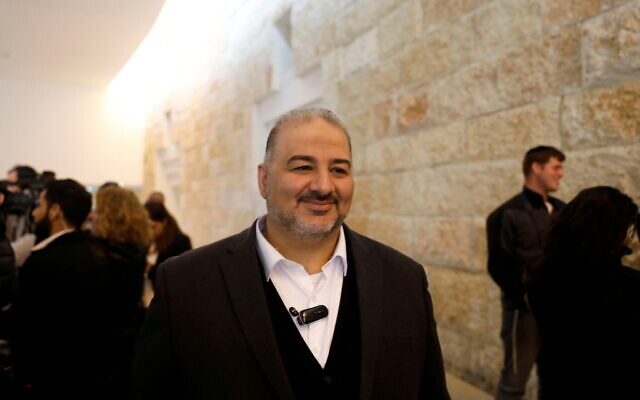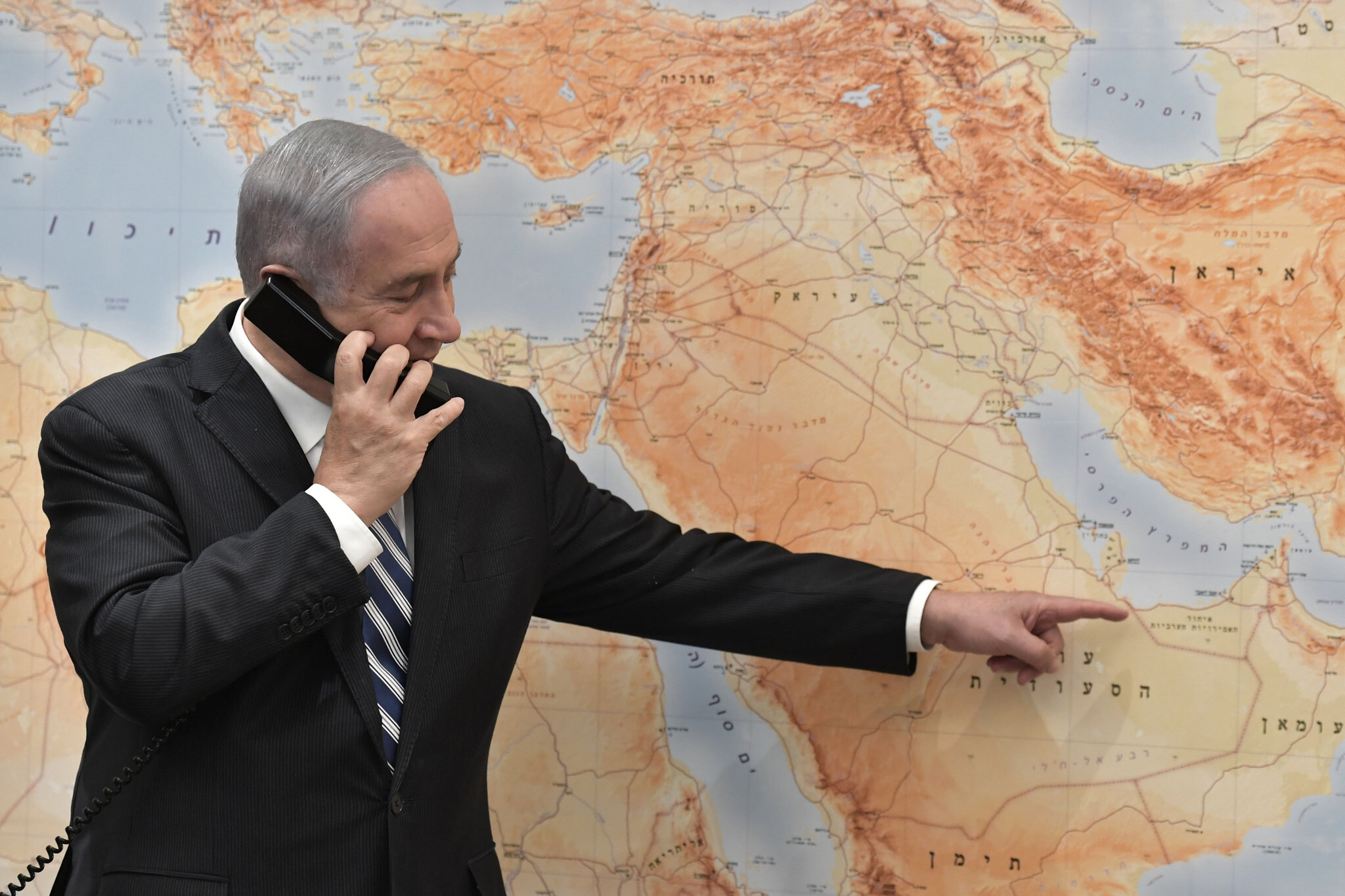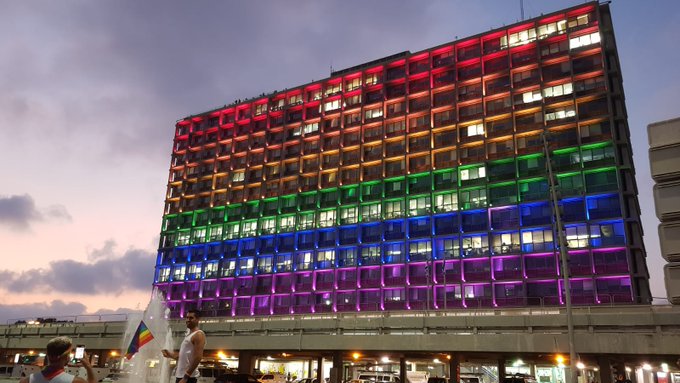Could Israel’s next coalition depend on this Arab party?
The four MKs in Mansour Abbas's United Arab List — also known as Ra’am — could hold the balance between a stable government and a fifth election

The results of last Tuesday’s ballot are too close to crown a winner, and the outcome now depends on who can convince the president they have the most realistic chance of building a stable government.
The United Arab List party — also known by its Hebrew initials, Ra’am — has four seats, which it could throw behind a Netanyahu-led coalition or behind his opponents.
Alternatively, it could support no-one, as Arab parties normally try to steer clear of coalition politics.
But Ra’am leader Mansour Abbas is different.
He broke away from the main Arab political alliance ahead of the election, and indicated that his party was even open to an agreement with Netanyahu, who is widely seen as antagonistic to Arabs.
And so Abbas is inundated with calls and requests for meetings both from Netanyahu’s Likud party and the politicians who are trying to build a non-Likud coalition: Yesh Atid, Blue & White, and Labour.
Before he decides which politician should attempt to form a government, President Reuven Rivlin meets representatives from each party and asks them who they believe should have the job.
Israel’s political establishment is now waiting, with bated breath, to hear who Mansour Abbas will recommend. Many are trying to influence what he tells the president before the meetings begin next week.
But that will not be the end of the Abbas drama. He holds so much in his hands that he could potentially drag out negotiations for weeks, considering offers from both sides to either facilitate their potential coalition or scupper that of their opponents.
The final election results put Likud and its allies at 52 seats, which will rise to 59 if Netanyahu can draw in Naftali Bennet’s right-wing Yamina. The anti-Netanyahu parties control 57 seats.
Both are short of a 61-seat majority; both could potentially reach this target if Abbas agrees to support them.
Abbas has met Yair Lapid, leader of the second-placed Yesh Atid, and sources said that the discussion was “excellent,” while there are reports that the Islamist party is leaning towards backing Netanyahu.
Meanwhile, Blue & White leader Benny Gantz has been tweeting warnings to Abbas. “Bibi is using you,” he cautioned, suggesting that he will renege on coalition deals that he makes.

It’s a familiar situation in Israeli politics: a small faction making gestures to different camps, asserting its value and in so doing raising its political price for cooperation.
What is unfamiliar is that the party in question is Arab and Islamist.
The new situation shifts assumptions of Israeli politics, thrusting such a faction to the centre, disrupting the assumption that Arab parties could only ever be compatible with a left-wing government, and also challenging the basic right-wing/left-wing parameter in Israeli politics.
After all, where does one plot Ra’am on this spectrum?
Several of its causes are often associated with the Israeli left: it wants a Palestinian state with Jerusalem as its capital, settlements dismantled, the release of Palestinian prisoners and the “return” of Palestinian refugees.
Inside Israel, it wants to change the controversial Nation State Law — which emphasises the Jewish nature of the state — by recognising Arabs as a “national minority” to bolster their rights, and to increase economic opportunities for Arabs.

This suggests it is most compatible with the likes of the left-wing Labour and Meretz in the anti-Netanyahu alliance. But on the other hand, it is socially extremely conservative, and Abbas famously spoke to an Israel news site in favour of conversion therapy for LGBTQ people.
This opposition to LGBTQ rights, and other aspects of a conservative agenda, make him a complicated partner for the left — and seemingly compatible with some of Netanyahu’s rightist allies, like the Religious Zionist faction, although their other differences are likely too large to bridge.
If it all seems like a puzzle that is too complex to complete, it may be because it’s exactly that.
Abbas’s power isn’t just the potential to make a coalition work, but also to ensure that no government-building attempts succeed, and send the nation back for yet another election.

Thank you for helping to make Jewish News the leading source of news and opinion for the UK Jewish community. Today we're asking for your invaluable help to continue putting our community first in everything we do.
For as little as £5 a month you can help sustain the vital work we do in celebrating and standing up for Jewish life in Britain.
Jewish News holds our community together and keeps us connected. Like a synagogue, it’s where people turn to feel part of something bigger. It also proudly shows the rest of Britain the vibrancy and rich culture of modern Jewish life.
You can make a quick and easy one-off or monthly contribution of £5, £10, £20 or any other sum you’re comfortable with.
100% of your donation will help us continue celebrating our community, in all its dynamic diversity...
Engaging
Being a community platform means so much more than producing a newspaper and website. One of our proudest roles is media partnering with our invaluable charities to amplify the outstanding work they do to help us all.
Celebrating
There’s no shortage of oys in the world but Jewish News takes every opportunity to celebrate the joys too, through projects like Night of Heroes, 40 Under 40 and other compelling countdowns that make the community kvell with pride.
Pioneering
In the first collaboration between media outlets from different faiths, Jewish News worked with British Muslim TV and Church Times to produce a list of young activists leading the way on interfaith understanding.
Campaigning
Royal Mail issued a stamp honouring Holocaust hero Sir Nicholas Winton after a Jewish News campaign attracted more than 100,000 backers. Jewish Newsalso produces special editions of the paper highlighting pressing issues including mental health and Holocaust remembrance.
Easy access
In an age when news is readily accessible, Jewish News provides high-quality content free online and offline, removing any financial barriers to connecting people.
Voice of our community to wider society
The Jewish News team regularly appears on TV, radio and on the pages of the national press to comment on stories about the Jewish community. Easy access to the paper on the streets of London also means Jewish News provides an invaluable window into the community for the country at large.
We hope you agree all this is worth preserving.





















